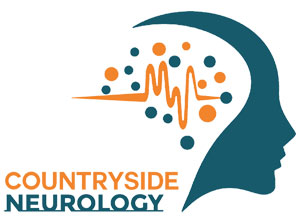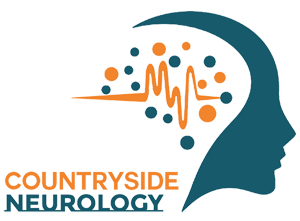Experiencing numbness can be unsettling, but understanding its causes and seeking appropriate treatment can help you regain control and find relief. At Countryside Neurology, we specialize in diagnosing and treating numbness, offering comprehensive care to address the underlying causes and restore sensation. Let’s explore the common causes of numbness, diagnostic procedures used to identify them, and the treatment approaches available at our practice.
Understanding Numbness: Common Causes
Numbness can occur for a variety of reasons, ranging from temporary issues like sitting in an awkward position to more serious medical conditions. Some common causes of numbness include:
- Nerve Compression: Pressure on nerves, such as that caused by repetitive motions or poor posture, can lead to numbness in the affected area.
- Peripheral Neuropathy: Damage to peripheral nerves, often caused by diabetes, infections, or exposure to toxins, can result in numbness, tingling, and weakness in the hands and feet.
- Carpal Tunnel Syndrome: Compression of the median nerve in the wrist can cause numbness and tingling in the thumb, index, and middle fingers.
- Stroke: Reduced blood flow to the brain can result in numbness or weakness on one side of the body, among other symptoms.
- Multiple Sclerosis: This autoimmune disorder can damage the myelin sheath surrounding nerves, leading to numbness, weakness, and other neurological symptoms.
Diagnostic Procedures: Shedding Light on the Cause
When evaluating numbness, our experienced neurologists may use a variety of diagnostic procedures to pinpoint the underlying cause, including:
- Physical Examination: A thorough physical exam can help assess sensation, strength, and reflexes, providing valuable insights into the source of numbness.
- Electromyography (EMG): EMG measures the electrical activity of muscles and nerves, helping to identify nerve damage or dysfunction.
- Nerve Conduction Studies: These tests evaluate the speed and strength of nerve signals, aiding in the diagnosis of conditions like peripheral neuropathy and carpal tunnel syndrome.
- Imaging Tests: MRI or CT scans may be used to visualize the brain, spinal cord, or peripheral nerves, helping to detect structural abnormalities or signs of stroke.
Treatment Approaches: Restoring Sensation
Once the underlying cause of numbness is identified, our team will develop a personalized treatment plan tailored to your specific needs. Treatment approaches may include:
- Medications: Depending on the underlying cause, medications such as pain relievers, anti-inflammatories, or nerve-stabilizing drugs may be prescribed to alleviate symptoms and manage underlying conditions.
- Physical Therapy: Targeted exercises and therapeutic techniques can help improve strength, flexibility, and coordination, reducing pressure on nerves and restoring sensation.
- Nerve Blocks: In some cases, injections of local anesthetics or steroids may be used to block nerve signals and provide temporary relief from numbness and associated discomfort.
- Lifestyle Modifications: Making changes to your daily habits, such as improving posture, avoiding repetitive motions, and maintaining a healthy weight, can help prevent and alleviate numbness.
Take Control of Your Numbness Today
Don’t let numbness hold you back from enjoying life to the fullest. Contact Countryside Neurology at 727-712-1567 to schedule an evaluation and get to the bottom of your symptoms. Our compassionate team of neurology specialists is here to help you understand the causes of numbness and find effective solutions to restore sensation and improve your quality of life. Don’t wait—take the first step toward managing your numbness with Countryside Neurology today.




